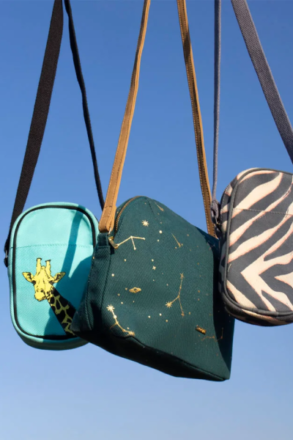- Empty cart.
- Continue Shopping
Roundup – World Environment News (31st August, 2017)

The last 15 days have been trying for the world as countries face unprecedented flooding- from Houston to Yemen to India, countries are grappling with the devastating effects of these disasters many of which are linked to climate change. Read about that and more-
Hurricane Harvey: strong evidence linking it to climate change
Scientists believe that hotter temperatures (including temperature of the Gulf of Mexico) were contributing factors to the intensity and duration of Hurricane Harvey. Experts say that in looking at a storm like Harvey, the impact of climate change is not simply about higher temperatures in the atmosphere and in the seas – it is also linked to changes in atmospheric circulation patterns.
Read more here.
Kenya bans plastic carrier bags in an aim to move away from single use plastics
The six-month notice to plastic producers ended on July 28, following which plastic in many forms has been banned in Kenya. In the first phase of the purge, only polythene bags that are bought for carrying products are targeted. Kenya has imposed fines and a jail term for 4 years on anyone making, selling or importing plastic bags. This is currently the toughest ban in the world.
Read about it here.
30-Foot Ship Made of Plastic has a foreboding message about our Trash
Surfers Against Sewage, an organisation dedicated to fighting plastic pollution in the oceans as well as protecting and preserving the UK’s beaches and marine life is focused on spreading awareness about the continent-sized and ever-growing patch of plastic trash known as the North Pacific Gyre. This latest campaign aims to position as “the world’s newest and most threatening country,” which they’ve aptly named “Wasteland”, the patch of trash nearly 5 times the size of the UK. The warship was made out of approximately three tons of plastic – all of it collected from UK’s beaches and the organisation hopes this installation will remind people to stop using plastic and raise awareness on its ill-effects.
Read more here. A similar labyrinth was also created in Spain, read more here.
Stray Dogs in India turned blue due to industrial pollution
The Navi Mumbai Animal Protection Cell filed a complaint with the Maharashtra Pollution Control Board after several stray dogs in Navi Mumbai’s Taloja industrial area were seen with their fur dyed bright blue. The group said the blue color comes from dyes pumped into the Kasadi River by nearby factories. Officials from the Maharashtra Pollution Control Board (MPCB) issued a closure notice against these factories for not following environmental rules and regulations.
Costa Rica plans to go plastic free
Costa Rica is the first country in the world that has announced that it will embark on a single-use plastics ban by 2021. It wants to become the world’s first country to achieve a comprehensive national strategy to eliminate single-use plastics. A global environmental leader, Costa Rica has already achieved numerous 100% renewable energy periods. The goal to eliminate single-use plastics coincides with Costa Rica’s 2021 goal of being carbon neutral — which was set a decade ago.
Read more on this encouraging news here.
Fishes are sniffing out plastic waste and confusing it for food
A study has shown results that odours from discarded plastic induce food search behaviours in fish, confusing plastic for prey. This is the first behavioural evidence that the chemical signature of plastic debris is attractive to marine fish. The research demonstrates that many species of marine fish could be affected by this attraction, including those sold for human consumption. If this is true then it means that fishes are actively searching for plastic for food rather than microplastics ingested by accident. The effect of plastic pollution is thus, directly affecting human consumption by creating a vicious cycle of contaminants.
Read more about this news here and here.
The World is coming together to fight mercury pollution
On August 16, 2017 the world’s first Convention to protect the environment and human health the Minamata Convention on Mercury, entered into force committing its 74 Parties to reducing the risks to human health and the environment from the harmful release of mercury and mercury compounds. Mercury is recognized to be particularly harmful to unborn children and infants.
Read more about this encouraging news here.
NYU has launched a new centre to support State Attorney Generals in environmental litigation
The NYU School of Law has created the State Energy & Environmental Impact Center (State Impact Center) dedicated to helping state attorneys general fight against regulatory roll-backs and other actions that undermine key clean energy, climate change, and environmental values and protections. The primary goal of the State Impact Center is to enable interested state attorneys general to expand their capacity to take on important clean energy, climate, and environmental matters by recruiting and hiring NYU fellows to serve as special assistant attorneys general.
Read more here.
The US Administration continues to carry out policies against the environment
The Trump administration has ended a six-year-old ban on selling bottled water at some national parks, which aimed to ease plastic pollution and the huge amount of waste being recycled. The ban prevented the selling of such bottles of water, but allowed other drinks in plastic bottles to be sold. This ban is being heavily criticized by environmentalists who see the effect on parks and animals as catastrophic. President Trump also signed an executive order which eliminated a part of an order from former President Barack Obama that required the federal government to take climate change and a rising sea-level into account when building.
Read about this policy change here and here.
About US
EcoRight is a young startup that is deeply committed to ‘Saving Our Planet, One Bag at a Time’. We are building a business that is working towards a brighter, sustainable future. We aim to reduce the use of plastic by offering affordable, good- looking reusable cotton and jute bags. We know you want to do something for the environment, and we know you want a nice looking bag as well.
- All EcoRight products are made from fabrics that are durable, kind to the environment and in ethical manufacturing facilities (audited by SEDEX)
- Dyes used for printing are eco-friendly and free of hazardous chemicals
- The bags are made of the highest quality and even the smallest one can hold up to 10 Kg of weight
- We donate 1% of all profits to causes supporting a brighter future – education and environment
- Our products are currently available on ecorightbags.com , Amazon India and Amazon USA.






